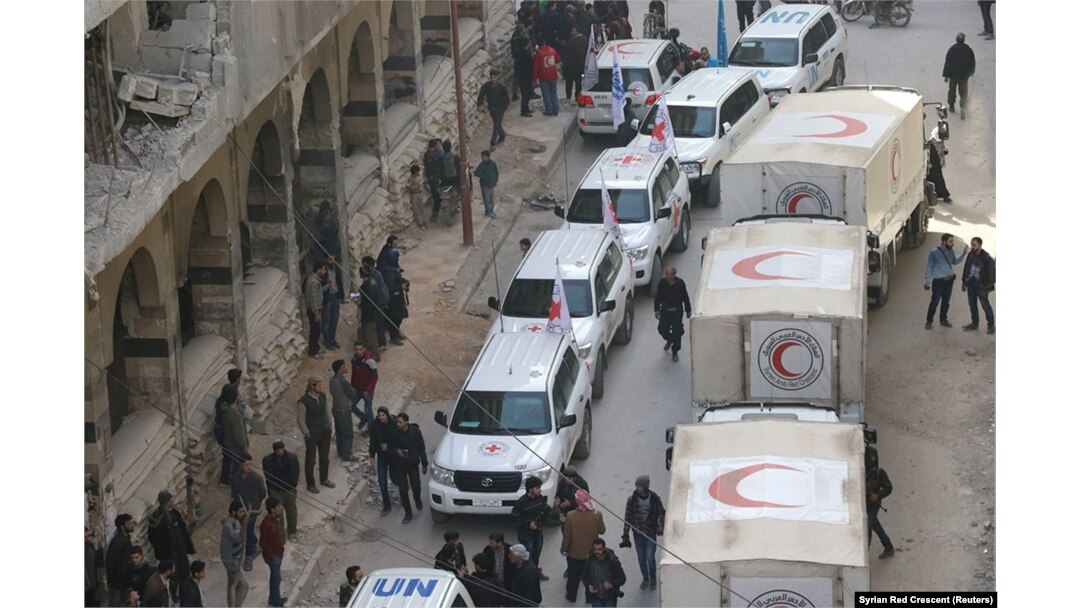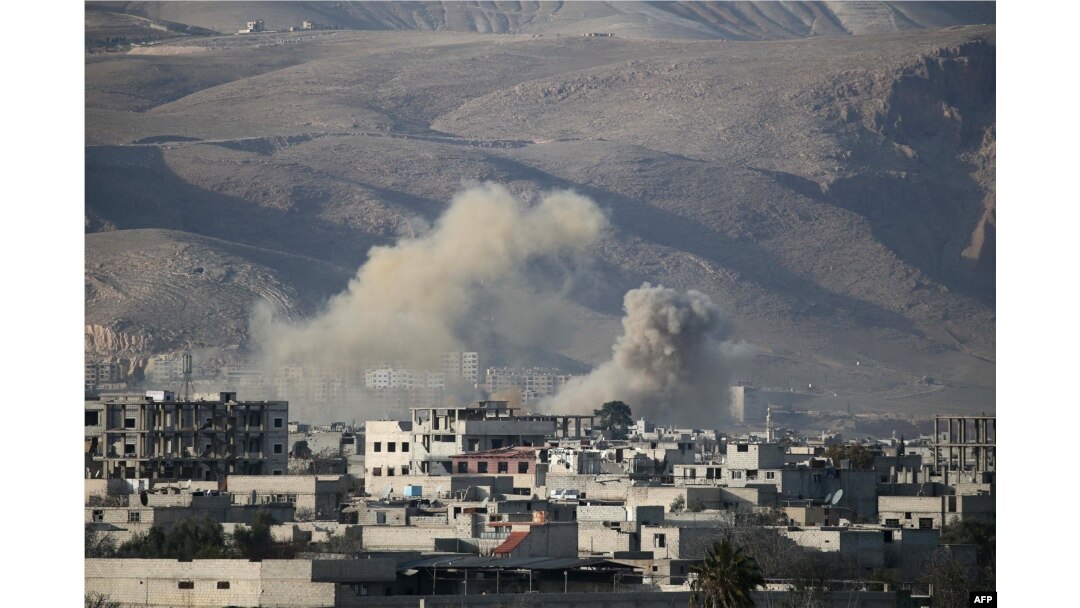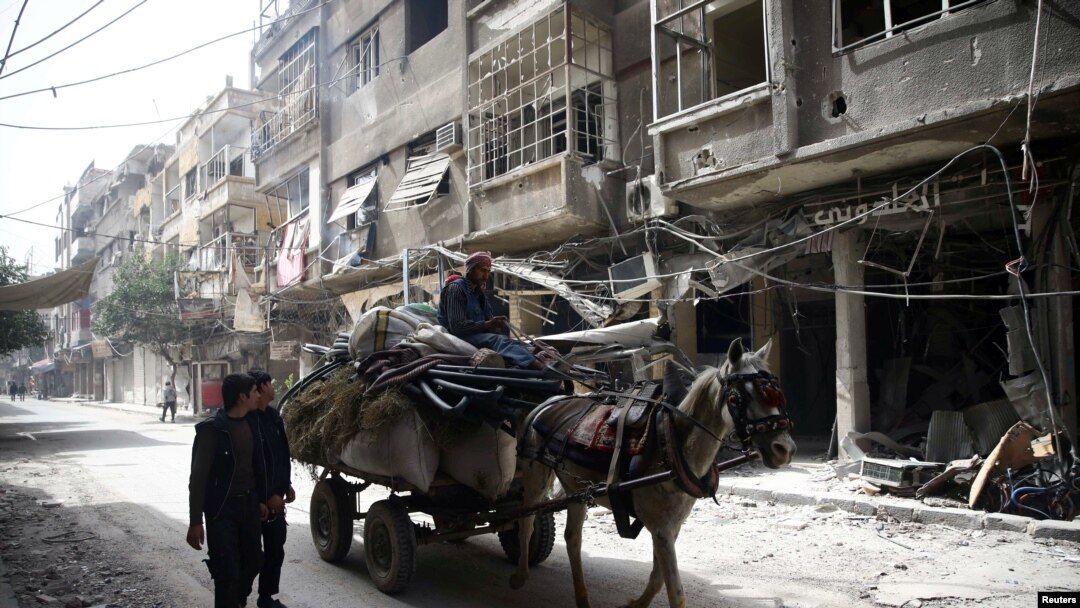The Syrian military is continuing its relentless aerial and ground assaults on eastern Ghouta in a campaign to recapture the rebel-held Damascus suburb, forcing the postponement of a critical shipment of humanitarian aid, according to the International Committee of the Red Cross.
The United Nations and the ICRC said the aid convoy for the besieged area would not embark as planned Thursday due to security concerns. Eastern Ghouta has been home to 400,000 people living under siege since 2013.
"The U.N. continues to receive reports of escalating fighting in east Ghouta and shelling on Damascus, endangering civilians and preventing humanitarian assistance from reaching hundreds of thousands of people in need, including thousands of vulnerable children," said Linda Tom, spokeswoman for the U.N. Office for the Coordination of Humanitarian Affairs.

Trucks from Syrian Red Crescent and humanitarian partners are seen in Ghouta, Syria, March 5, 2018, in this picture obtained from social media.
Difficult mission
A 46-truck convoy was able to deliver some supplies to the Duma section of eastern Ghouta on Monday, but the U.N., ICRC and Syrian Arab Red Crescent cut short that mission as deadly violence continued in the area. Tom said 10 full trucks and four partial trucks could not be unloaded, including "half the food for 27,500 people."
"The U.N. remains ready to deliver assistance to all people in need in Duma, other areas in east Ghouta and other hard-to-reach and besieged areas as soon as conditions allow," she said.

Smoke billows following Syrian government bombardments on the besieged rebel-held town of Hamouria in the eastern Ghouta region on the outskirts of the capital Damascus, March 3, 2018.
Fighting in eastern Ghouta has escalated in recent weeks as the Syrian government, backed by Russian forces, boosts efforts to recapture the area. The violence has killed more than 900 civilians, said the Britain-based Syrian Observatory for Human Rights, which added that pro-government forces have effectively seized half of the territory held by the opposition.
Rebels have accused Syrian government troops of using "scorched earth" tactics and said they trying to stop further advances by deploying more guerrilla-style ambushes.
Security Council
The U.N. Security Council demanded a 30-day halt in fighting across Syria nearly two weeks ago in order to allow food and medical aid to reach those in need, but the resolution has been ignored.
FILE - Members of the U.N. Security Council vote for cease-fire to Syrian bombing in eastern Ghouta, at U.N. headquarters in New York, Feb. 24, 2018.
The Dutch ambassador to the U.N., Karel van Oosterom, who holds the Security Council's rotating presidency, said the members called Wednesday for all parties in Syria to implement the cease-fire and expressed concern about the country's humanitarian crisis.
He spoke after a closed-door session requested by Britain and France.
"We've called this meeting with the U.K. because the Syrian regime, as we speak, keeps besieging and bombing its own citizens in eastern Ghouta in complete violation of Resolution 2401 that was unanimously adopted by the council," French U.N. representative Francois Delattre told reporters.
Sweden's representative to the U.N., Olof Skoog, demanded before the meeting "full and immediate implementation of the resolution" and "immediate progress on medical evacuations" from the area.
Council members are scheduled to discuss the implementation of the cease-fire again on Monday when they meet with U.N. Secretary-General António Guterres.
In a tweet Wednesday, U.S. State Department spokeswoman Heather Nauert accused Russia of not being committed to the cease-fire.
Russia's defense ministry said Tuesday that Syrian rebels, in addition to civilians, are free to use evacuation corridors to leave eastern Ghouta. Members of the opposition have said they will not leave.


